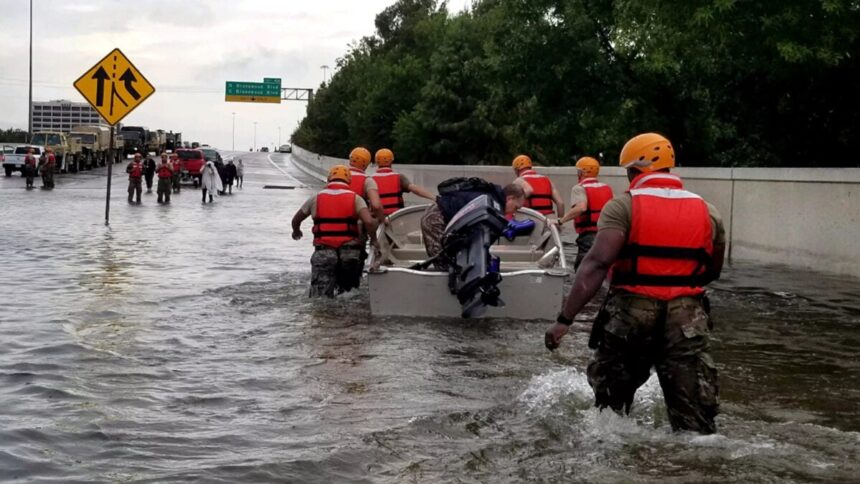When Superstorm Sandy made a beeline for New York City in October 2012, it flooded huge swaths of downtown Manhattan, leaving 2 million people without electricity and heat and damaging tens of thousands of homes. The storm followed a sweltering summer in New York City, with a procession of heat waves nearing 100 degrees.
For those who were pregnant at the time, enduring these extreme conditions wasn’t just uncomfortable—it may have left a lasting imprint on their children’s brains. That’s according to a new study published on Wednesday in the peer-reviewed journal PLOS One. Using MRI scans, researchers at Queens College, City University of New York, found that children whose mothers lived through Superstorm Sandy had distinct brain differences that could hinder their emotional development. The effects were even more dramatic when people were exposed to extreme heat during their pregnancy, in addition to the tropical storm, the researchers found.
“It’s not just one climate stressor or one isolated event, but rather a combination of everything,” said Donato DeIngeniis, the lead author of the study and a doctoral student in neuropsychology at the CUNY Graduate Center. DeIngeniis’ study is the first of its kind to examine the joint effects of natural disasters and extreme heat—events that often coincide. A few years ago, scientists dubbed summer “danger season” since it’s a time of colliding risks, including heat, hurricanes, wildfires, and toxic smoke. And summertime temperatures keep climbing to new heights.
The study analyzed brain imaging data from a group of 34 children, approximately 8 years old, whose mothers were pregnant during Superstorm Sandy—some of whom were pregnant at the time that Sandy made landfall, and some of whom were exposed to heat 95 degrees F or higher during their pregnancy. While the researchers didn’t find that heat alone had much of an impact, living through Superstorm Sandy led to an increase in the basal ganglia’s volume, a part of the brain that deals with regulating emotions.
While that larger size could be a compensation in response to stress, changes in the basal ganglia have been linked to behavioral challenges for children, such as depression and autism, DeIngeniis said.
“What we are seeing is compelling evidence that the climate crisis is not just an environmental emergency, it is potentially a neurological one with consequence for future generations who will inherit our planet,” said Duke Shereen, a co-author of the study and the director of the MRI facility at CUNY Graduate Center, in a press release. Global warming made Superstorm Sandy more damaging as a result of rising sea levels and higher ocean temperatures that might have amped up its rainfall.
Yoko Nomura, a co-author of the study and a psychology professor at the Queens College, CUNY, said that the time before birth is “very, very sensitive” for development because the fetus’ body is changing so drastically. The human brain grows the most rapidly in the womb, reaching more than a third of its full adult volume before birth, according to the study. Any added stress at that time, even if small, “can have a much bigger impact,” Nomura said.
But that extra-sensitive period also presents a window of opportunity. “Developmental science, including the science in this paper, is exciting because it not only tells us what we can do to protect children from the effects of climate change, but it also tells us when we can step in to protect children to make the greatest difference,” Lindsey Burghardt, chief science officer at the Center on the Developing Child at Harvard University, said in an email.
Although there’s a lot of evidence that prenatal stress generally can affect child brain development, according to DeIngeniis, research on climate-related stress specifically is lacking. “It is still a field that has potential for explosive growth,” said Jennifer Barkin, a professor at Mercer University School of Medicine in Macon, Georgia, who is studying the effects of last year’s Hurricane Helene on maternal health.
DeIngeniis’ study offers concrete evidence of how climate-charged events can affect the brain, Barkin said. “People have a hard time sometimes with mental health, because it’s not like you can take an X-ray and see a broken bone.” But it’s easier to understand imaging showing a difference in brain volume based on exposure to environmental stress, she said.
Barkin, who developed an index for measuring maternal health after childbirth, says that people are beginning to pay more attention to mothers and their mental health—not just in terms of delivering a healthy baby, but over the long term. “We tend to focus things on the child’s outcome, which is important, but to keep the child healthy, the mother has to be healthy, too,” she said. “Because when Mom’s struggling, the family’s going to struggle.”
This article originally appeared in Grist at https://grist.org/health/climate-disaster-baby-research-brain-development/. Grist is a nonprofit, independent media organization dedicated to telling stories of climate solutions and a just future. Learn more at Grist.org.
Read the full article here











